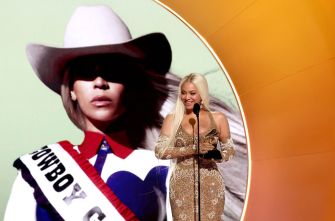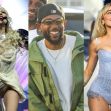The 2025 Grammy Awards were suspiciously perfect. Beyoncé finally won Album of the Year, a long-overdue recognition that fans, critics, and industry veterans had been demanding for over a decade. Cowboy Carter, her genre-defying country epic, also won Best Country Album, and in doing so, cracked open a conversation about who gets to belong in country music.
It wasn’t just her night. Chappell Roan’s win for Best New Artist came with an emotional speech that felt like the beginning of a new pop era. Doechii’s acceptance for Best Rap Album was a cultural reset in itself. And for once, the Grammys didn’t spark chaos on the timeline, no shocking snubs, no baffling wins.
But perfection rarely comes without adjustments. As the Recording Academy gears up for the 2026 ceremony, several category and rule changes are being rolled out, many of which seem directly influenced by the outcomes of the 2025 awards.
The Country Shake-Up
First, that Best Country Album award that Cowboy Carter won? It’s gone, at least in name. Starting with the 2026 Grammys, the category has been split into two: Best Contemporary Country Album and Best Traditional Country Album.
According to the Recording Academy, the Traditional category will spotlight records that adhere to “the more traditional sound structures of the country genre, emphasizing specific instrumentation and lyrical themes rooted in the genre’s origins, which is ironic considering the genre was originally made by Black artists.
Meanwhile, Contemporary Country will presumably capture everything else, the genre-bending, pop and radio-friendly. It’s hard not to see this as a direct reaction to Cowboy Carter. While the album’s historic win was celebrated by many, it also sparked intense debate about genre boundaries and cultural gatekeeping in country music. These new categories, for better or worse, signal the Academy’s attempt to address that tension head-on.
In contrast, the pop and dance/electronic fields remain relatively lean. Since 2024’s introduction of Best Dance Pop Recording - the first new category in the space since 2005, no further expansions have been announced. Still, many fans suspect Beyoncé’s 2023 win for Best Dance/Electronic Album with Renaissance helped spark that change.
Best New Artist Redefined
Another notable change affects Best New Artist eligibility. Previously, artists who were featured (but didn’t win) on an Album of the Year nominee weren’t eligible. Now, as long as that contribution was under 20% of the album’s total playtime, those artists can compete, provided they meet the other debut requirements.
In plain terms: being a background vocalist or featured guest on someone else’s Grammy-nominated album won’t disqualify you from being considered “new” anymore. It’s a shift that feels in line with how artists build careers today: slowly, collaboratively, and across genres.
The visual categories are also being reshaped. The Recording Academy will now combine Best Recording Package and Best Boxed or Special Limited Edition Package into a single award: .
Additionally, a revived Best Album Cover award will highlight excellence in art direction, photography, and package design, focusing on the album’s full visual experience, from the front cover to any included materials. This decision acknowledges that packaging, while often overlooked, is a major part of an album’s identity.
The 2026 Grammy Awards will air live on Sunday, February 1, 2026. To be eligible, recordings must be released between August 31, 2024, and August 30, 2025. Nominees will be announced on Friday, November 7, 2025.






